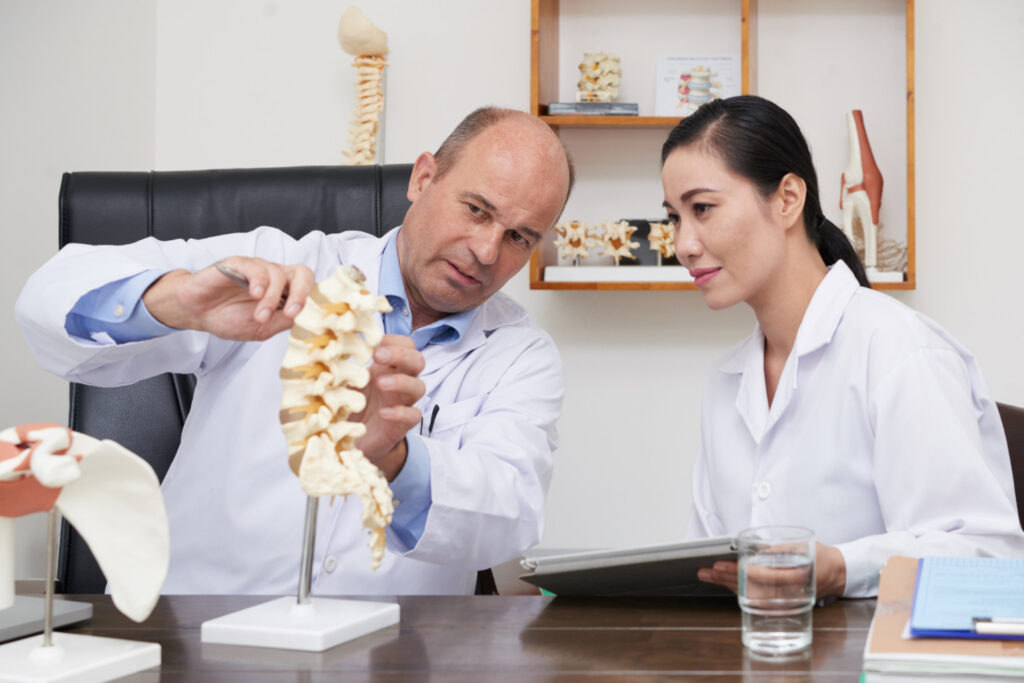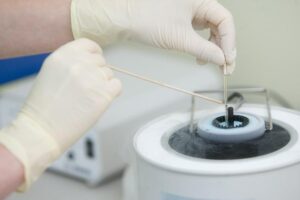Slip disc herniated disc or ruptured disc is the pushing out of the soft cushion between the bones of your spine. It can cause pain and discomfort and sometimes even further complications if not treated correctly. Fortunately, there are many lifestyle changes and home remedies that can help you out in the treatment of a slipped disc. If within your 20s, maintaining healthy lifestyle activities can be quite beneficial for recovery and can even avert some future complications. Following are some practical tips, lifestyle changes, and home remedies that can be helpful along with the slip disc treatment.
Lifestyle Changes to Facilitate Healing
Modest adjustments in one’s lifestyle can make all the difference in slip disc, and here are some of them that serve as plausible solutions:
1. Incorporate Low-Impact Exercise Daily
A slipped disc requires exercise regularly for its recovery. The best low-impact exercises include swimming, walking, and yoga. These keep you active without overloading your spine. For example, walking will give you core muscles while swimming is very relieving because it minimises the weight on the spine.
What You Can Do:
- Practice walking or swimming daily for at least 30 minutes
- Spend a few minutes every day doing some easy stretches to increase flexibility
- Consider adding a beginner’s yoga class that’s focused on spinal care
2. Good Posture
One of the most accessible but efficient lifestyle changes is how you carry yourself. Improving your posture can reduce additional strain on your spine, thus making poor posture a contributing factor in exacerbating a slipped disc. Be aware of how you sit, stand, and even sleep because these are all positions that affect your spine.
How To Improve Your Posture?
- Sit with a straight back, relaxed shoulders and your feet on the floor.
- Use a chair that supports your lower back if you sit for many hours.
3. Hydration
Water, therefore, keeps your discs healthy. In fact, discs are made of about 80% water. Consequently, adequate drinking of water makes them flexible and strong. However, if you do not drink enough water, your discs lose their cushioning ability, which means there is a higher likelihood that you may get injured or be in pain.
Hydration Tips:
- Drink at least 8 to 10 glasses of water per day
- Include hydrating foods such as cucumbers, watermelon, and oranges in your diet.
4. Maintain Healthy Weight
Excess weight amounts to extra pressure on the spine; your body finds it challenging to recover from a slipped disc. Maintaining a healthy weight reduces pressure on the spine, hence enhancing your general well-being.
Maintaining Healthy Weight:
- Eat more fruits and vegetables; take more whole grains in your meals
- Avoid processed and high-sugar foods that tend to make you gain weight
- Regular physical exercises can burn calories and increase muscle tone
Home Remedies for Relief from Pain of Slip Disc
Although lifestyle interventions can work well in slip disc treatment, there are a few home remedies which can ease pain and discomfort. These remedies are simple to follow and can be complementary to any other treatments you may be undergoing.
1. Heat and Cold Therapy
Heat and cold therapy are often recommended to help alleviate pain and inflammation. Cold therapy will numb the area that’s affected while it reduces swelling. In contrast, heat therapy will increase blood flow to the affected area to hasten healing.
Using Heat and Cold Therapy:
- Apply a cold pack to the affected area for 15-20 minutes, often repeating this a few times a day, especially after doing activities that cause pain.
- Use a heating pad or take a warm bath to relax muscles and ease tension
2. Rest and Avoid Strenuous Activities
While it’s important to stay active, it’s equally crucial to listen to your body and avoid activities that cause pain or strain. Rest is an essential part of healing, especially in the early stages of a slipped disc.
Rest Tips:
- Take breaks during the day to rest your back
- Avoid heavy lifting or any activity that provokes twisting of the spine
- Gradually return to physical activity as your pain subsides
3. Chiropractic Treatment
Chiropractic care treatment is indeed the most common and, moreover, successful treatment for a slipped disc. Chiropractors can skillfully manipulate the spine to relieve nerve pressure and consequently help it return to its proper alignment. In this line, as a result, the patient benefits from the treatment, remaining pain-free, with neither surgery nor medication.
What chiropractic care achieves:
- Relieves pressure on the herniated disc
- Encourages return to normal movement of the spine
- Reduces pain and improves mobility
If you ever want to, consequently, seek chiropractic treatment for your slipped disc, it is, therefore, best advised to seek, in particular, the services of licensed and experienced chiropractic doctors. They will, in turn, assess the intensity of your condition and, subsequently, recommend the best treatment program for you.
4. Massage Therapy
Massage may be used to relax tense muscles, stimulate circulation and ease slipped disc-related pain. Massages can also serve as a stress reducer, contributing to back pain.
Massage Tips:
- Be with a licensed massage therapist who specialises in initial-related conditions; make regular appointments
- Request your massage therapist to focus on the areas near the slipped disc
- You may incorporate essential oils such as lavender or eucalyptus for relaxation
5. Herbal remedies and anti-inflammatory foods
Other herbs and, additionally, food products contain built-in natural anti-inflammatory properties that, in fact, help in significantly cutting down swelling and pain of the slipped disc. Therefore, application in the diet can, in this case, prove to be a viable treatment for recovery.
Anti-Inflammatory Foods and Herbs
- Turmeric: It contains curcumin- a powerful anti-inflammatory compound.
- Ginger: It is an anti-inflammatory herb that helps soothe pain.
- Omega 3-rich food: Some rich sources of omega 3 comprise Salmon, Flaxseeds, and Walnuts which are anti-inflammatory foods.
What to Avoid for Quicker Recovery
To help you heal better and avoid the worsening of your slipped disc condition, these habits and activities will need to be avoided.
1. Long hours of sitting
Sitting for long periods of time puts more pressure on the discs of your lower back. While working at a desk, get up regularly and stretch. These are tips that can help you.
2. Shun heavy lifting
Heavy lifting may accelerate your condition. Every time you have to pick something up, bend from your knees; use your legs to do the pushing, not your back.
3. Avoid High- Impact Sport
Such sports that include running, jumping, or intense impacts- basketball or football-should be avoided for some time because they put the spine under extra stress.
Conclusion
A slipped disc doesn’t always call for a surgical procedure or medication for treatment. In fact, lifestyle changes and home remedies are capable of doing much more to heal the condition. For instance, by adding regular exercise, proper posture, hydration, and choosing chiropractic care and massage therapy among many other remedies, you are always helping your body to heal itself. Furthermore, along with these measures, abstaining from activities that might exacerbate your condition and making sure to listen to your body will also help in healing. However, even though these techniques have their merit, ensure that if the symptoms start aggravating, you see a medical practitioner.






